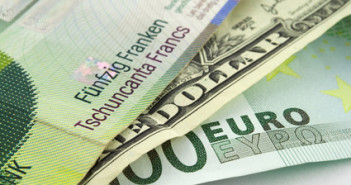According to the Flash release, the German economy grew by only 0.1% in Q1 2013. The euro-zone’s locomotive was expected to return to growth of 0.3% after contracting sharply by 0.7% in Q4 2012 (revised down from 0.6%). Recent signs from Germany have been mixed. While officially Germany has avoided a recession (two consecutive quarters of decline), a growth rate of 0.1% certainly doesn’t put Germany as a real “locomotive†for growth.
EUR/USD was trading around 1.2925 before the publication and fell to a new low of 1.2908 immediately afterwards. Update: the pair extends its fall and is looking to lose 1.29. The next line of support is 1.2880.
The year-over-year grow contraction is 1.4%. The previous year-over-year figure is now 0% (revised down from 0.1% initially reported).
Bad weather takes the blame for weak growth. The German consumer pushed growth higher, against all the other factors.
It lost a bit of ground after the release of the French figures: the French economy squeezed by 0.2%Â (according to the initial estimate), a bit worse than 0.2% that was expected, although Q4 was revised to the upside.
Later in the day, the euro-zone’s third largest economy, Italy is expected to show a contraction of 0.4% at 8:00 GMT. The figure for the whole euro-zone is scheduled for 9:00, and is expected to show a squeeze of 0.1% – a third consecutive quarter of contraction, but expectations change according to the disappointing German release.
For more on the euro, see the euro to usd forecast.
new TradingView.widget({
“width”: 610,
“height”: 400,
“symbol”: “FX:EURUSD”,
“interval”: “60”,
“toolbar_bg”: “#E4E8EB”,
“hide_side_toolbar”: false,
“allow_symbol_change”: true
});
Get the 5 most predictable currency pairs



